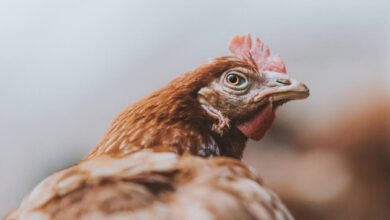What’s a Dachshund’s Personality Like?

Wondering what a dachshund’s temperament is like? Dachshunds, often affectionately referred to as “wiener dogs” or “doxies,” are one of the most recognizable and unique-looking dog breeds in the world. Beyond their elongated bodies and short legs, they boast an equally distinctive temperament. Dachshunds were originally bred in Germany for hunting badgers, which explains much of their temperament and behavior today. If you are thinking of bringing a Dachshund into your home or are curious about their personality, this article offers insights into the breed’s temperament.
1. Courageous and Brave
Given their history as badger hunters, it’s not surprising that Dachshunds are fearless. Badgers are known to be ferocious animals, and the Dachshund was bred to chase and flush them out of their burrows. This background has left an indelible mark on their personality, making them brave, perhaps sometimes to a fault. Their small size might be deceiving, but they can be gutsy and will stand their ground.
2. Loyal Companions
Dachshunds are extremely loyal to their owners. They can form a deep bond with their human families and often become particularly attached to one person. This loyalty makes them wonderful companions but can sometimes border on the side of being overly protective. If they perceive a threat, they might bark or become defensive, even if the “threat” is just a friend visiting.
3. Stubborn Streak
If there’s one word that many Dachshund owners might use to describe their pets, it’s “stubborn.” These dogs have a mind of their own. While they are intelligent and can learn commands and tricks, they often choose when and where to obey. Consistent training from an early age and using positive reinforcement techniques can help manage this trait.
4. Playful and Curious
Dachshunds are naturally curious dogs. They love to explore their surroundings, which can sometimes lead them into mischief. They might be found digging in the garden or sniffing around in places you’d prefer they didn’t. This curiosity, paired with their playful nature, makes them delightful companions, especially for families. Their antics can be a constant source of amusement.
5. Vocal Communicators
Dachshunds are known for their vocal nature. Whether it’s barking at a perceived threat, whining for attention, or simply communicating their feelings, they’re rarely silent for long. This vocal tendency means they can make good watchdogs, alerting their owners to anyone approaching the home. However, it’s essential to train and socialize them early to ensure their barking doesn’t become problematic.
6. Variability Among Coats
Dachshunds come in three coat types: smooth, long-haired, and wire-haired. It’s worth noting that there can be subtle temperament differences among these. For instance, long-haired Dachshunds are often described as being more laid-back and calm compared to their smooth or wire-haired counterparts. Wire-haired Dachshunds can be more clownish and energetic.
7. Social Creatures
While they can be wary of strangers, Dachshunds are social creatures. They enjoy being part of the family activities and don’t like being left alone for extended periods. They can get along well with children and other pets if introduced correctly and early. However, due to their small size, it’s essential to supervise interactions with young children to prevent accidental injury.
8. Tendency to be Possessive
Dachshunds can sometimes be possessive of their toys, food, or even their favorite human. This trait ties back to their hunting background, where guarding their catch was essential. Early training and proper socialization can help curb this tendency and ensure they share their space and belongings graciously.
Dachshunds, with their distinctive appearance and equally unique personality, are a joy to many households around the world. Their brave and loyal nature, combined with a dash of stubbornness and a sprinkle of curiosity, makes them a fascinating breed to get to know. Like any dog, understanding and respecting their background and temperament is key to fostering a loving, harmonious relationship. Whether you’re considering adopting a Dachshund or simply wish to understand them better, embracing their qualities and providing consistent training and socialization will ensure a happy, well-adjusted companion.
Frequently Asked Questions about a Dachshund’s Temperament and Personality

- Are Dachshunds aggressive or friendly dogs? Dachshunds are generally friendly dogs, especially towards their families. However, due to their hunting origins, they can be wary of strangers and might bark or become protective. Proper socialization from a young age can help mitigate any unnecessary aggression.
- Do Dachshunds get along with kids? Yes, Dachshunds can get along well with children, especially when raised with them. Due to their small size, interactions between Dachshunds and very young children should be supervised to prevent unintentional rough play.
- How do Dachshunds fare with other pets? While Dachshunds can get along with other pets, especially if introduced properly, their hunting instincts might cause them to chase smaller animals. Early socialization and proper introductions can ensure harmonious relationships.
- Are Dachshunds stubborn? Dachshunds are known for their independent and sometimes stubborn nature. This can make training a challenge, but with consistent and positive reinforcement, they can be taught various commands and behaviors.
- How vocal are Dachshunds? Dachshunds are quite vocal. They often bark to alert their owners of visitors, perceived threats, or simply to communicate their feelings and needs.
- Is it true Dachshunds can be possessive? Yes, Dachshunds can display possessive tendencies over toys, food, or even their favorite human. Proper training and socialization can help manage and reduce this behavior.
- Are Dachshunds high-energy dogs? Dachshunds have a moderate energy level. They enjoy daily walks and play sessions but are equally content lounging at home.
- Do Dachshunds suffer from separation anxiety? Dachshunds can experience separation anxiety, as they form strong bonds with their families. Providing toys, training, and sometimes even a companion can help reduce anxiety when left alone.
- How intelligent are Dachshunds? Dachshunds are intelligent dogs. While they can be independent thinkers, which some might mistake for a lack of intelligence, they are quite clever and can learn a variety of tasks and tricks.
- Are Dachshunds easy to train? Due to their independent and sometimes stubborn nature, Dachshunds can be a challenge to train. However, with patience, consistency, and positive reinforcement, they can be effectively trained.
- Do Dachshunds like to dig? Yes, Dachshunds have a natural instinct to dig, stemming from their history of hunting badgers in burrows. Providing them with a designated digging area can help satisfy this instinct without ruining your garden.
- Are Dachshunds known to be loyal? Absolutely! Dachshunds are incredibly loyal to their families, often forming a particularly strong bond with one member.
- Do Dachshunds have a playful nature? Yes, Dachshunds are playful and curious dogs. They enjoy toys, games, and interactive play sessions with their families.
- Can Dachshunds be protective? Dachshunds can be quite protective, especially of their favorite people. This trait, combined with their alertness, can make them effective watchdogs.
- How are Dachshunds with strangers? Dachshunds can be wary of strangers, often barking or displaying caution when meeting someone new. Proper socialization can help them become more accepting and less apprehensive of unfamiliar people.
What Kind of Person is a Good Fit for a Dachshund?

5Dachshunds, with their quirky appearance and spirited personalities, certainly aren’t a one-size-fits-all kind of dog. Their unique temperament requires an owner who understands and appreciates their characteristics. If you’re considering bringing a Dachshund into your life, it’s essential to determine if your lifestyle and personality are compatible with theirs. Here’s what typically makes a person a good fit for a Dachshund:
1. Patient and Consistent
Given a Dachshund’s notorious stubborn streak, an owner needs patience in spades. Training a Dachshund can be both a delightful and challenging experience. While they are intelligent and capable learners, they sometimes decide to follow their own agenda. Consistent, positive reinforcement-based training methods work best, and this requires an owner who is persistent and patient.
2. Active yet Home-loving
Dachshunds are moderately active dogs. They enjoy walks, play sessions, and even some games that tap into their hunting instincts. An individual or family that enjoys daily walks or playtime in a yard would be ideal. However, Dachshunds also love lounging with their humans. If you enjoy relaxing evenings on the couch, a Dachshund will happily curl up beside you.
3. Vigilant Supervisors
Due to their small size and elongated backs, Dachshunds can be prone to certain injuries. An owner should be vigilant and prevent activities that could harm them, such as jumping off high surfaces. Additionally, given their hunting background, they have a propensity to dig and chase. An observant owner who can ensure their safety, especially outdoors, is crucial.
4. Social Butterfly
If you’re a person who often has visitors or leads a social lifestyle, a Dachshund might fit right in. They are typically good with families and enjoy social interactions, but early socialization is vital. Their protective nature means they can be wary of strangers, so an owner who can provide frequent positive interactions with various people will help in ensuring a well-adjusted dog.
5. Understanding of the Dachshund’s Vocal Nature
People who appreciate or at least tolerate a dog that often communicates vocally might find the Dachshund a good match. Their barking tendencies, while useful for alerting owners to visitors, can become problematic if not addressed. An understanding owner who can teach quiet commands and provide proper socialization will help channel this vocal nature constructively.
6. Prepared for Commitment
Dachshunds are known for their loyalty, and in return, they seek the same from their owners. These dogs can live up to 15 years or more, and adopting one means committing to their care for their entire life. This involves regular vet visits, consistent training, grooming, and plenty of affection.
7. A Gentle Nature
Dachshunds respond best to gentle, loving treatment. Harsh training methods or rough handling can make them retreat or become defensive. An owner who approaches their Dachshund with understanding and kindness will earn a loyal and affectionate companion.
Dachshunds are not just any dog – they’re a blend of bravery, loyalty, playfulness, and stubbornness, all packaged in a unique physique. The ideal Dachshund owner appreciates these traits and knows how to navigate the challenges while relishing the joys. If you can offer patience, commitment, activity, and love, a Dachshund might just be your perfect furry match.




